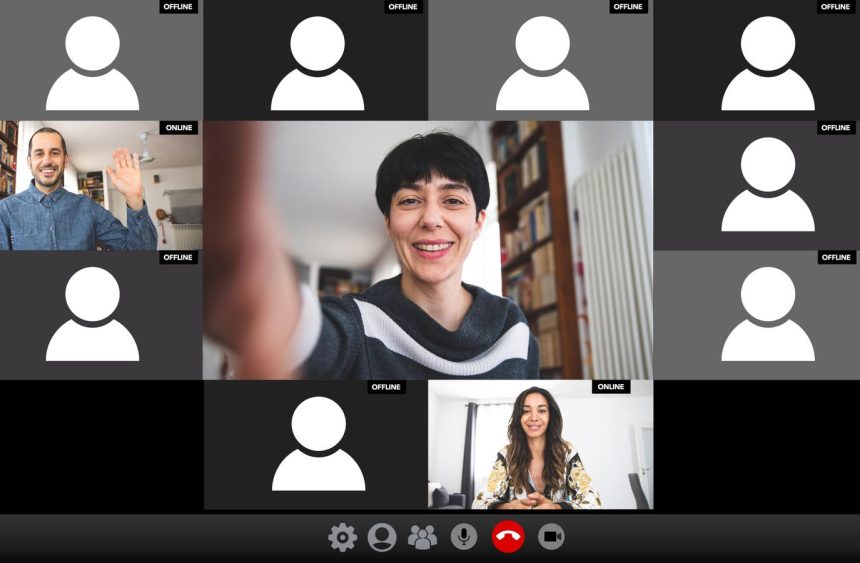Stacey Hanke is author of the book “Influence Redefined… Be the Leader You Were Meant to Be, Monday to Monday®.”
You’re multitasking. Admit it. You know it, and so do those you work with.
People pay attention when your video is off. The blank black tile with your name scrawled across it sends a message to others attending. It says you’re disengaged and distracted.
Your distraction may be emails, text messages or work-related projects. It might be a messy house, a phone call, kids or a cat. No matter the reason, when your video is turned off, others assume you are not paying attention.
A recent survey found that 93% of executives believe that employees who turn off their cameras on virtual calls are generally less engaged in their work. At that rate, you would be hard-pressed to convince them otherwise.
Many employees turn their videos off because they are frustrated. Too many unproductive virtual meetings cause them to fall behind at work. If they sense that a meeting is a waste of time, they’ll turn off their video and spend the time catching up.
I get it. Meeting facilitators could improve their influence skills so that virtual meetings are beneficial for all who attend. But their behavior doesn’t excuse yours.
Here are three reasons you need to turn on your video during virtual meetings.
1. People pay attention.
Participants are more apt to notice your video turned off than the disheveled state of your on-screen workplace behind you. One study found that many employees perceive those who attend calls with their video off as rude, impolite or disrespectful.
How much influence can you have when your peers consider you to be disrespectful? How likely are they to engage the next time when you are the facilitator who is front and center?
Show your commitment to others. Turn on your video and engage. Eliminate distractions and give the meeting your attention. You’ll likely understand the topic better and retain the information longer, making it a more productive use of your time.
2. Leaders take note.
The saying “perception is reality” is true—especially regarding your leader. Leaders notice when you attend meetings and how you attend them. Many struggle to justify continued remote or hybrid workplaces because they believe that building a connected, productive team is easier when everyone is in person.
When leaders sense that employees are disengaged or disconnected, they worry about talent retention. In fact, 92% of surveyed executives believe workers who frequently turn videos off during meetings may not have a long-term future at the company.
Ouch.
Employers understand that low meeting engagement results in negative employee dispositions and a loss of productivity, negatively impacting an organization’s bottom line. If they can’t trust you to engage online fully, it makes sense that they would consider bringing you back to the office.
Working remotely has its perks. If you enjoy the flexibility that virtual and hybrid options provide, become more engaged. Demonstrate your commitment by turning on your video and joining the conversation. Eliminate distractions that steal your attention, then connect with your coworkers.
3. Increase your influence.
Be the change you wish to see. If unproductive meetings leave you disengaged and distracted, be a game changer. Just because many meetings have the same predictable structure and style doesn’t mean you must follow suit.
Consider mixing it up. Instead of hosting an hour-long virtual meeting, use brevity to cut down on time. Enlist the help of other participants to ask questions, take notes and facilitate breakout groups. Scrutinize your participant list to demonstrate your value for others’ time. Use visual aids to invoke emotion rather than share data just as easily sent over email.
If you want others to find value in your meetings, grab their attention early and keep them engaged.
How others experience you defines your personal brand. It determines the respect you earn and the influence you have to get others to act.
People notice. What they notice is up to you. If you want others to see you for the engaged, committed professional you are, join the conversation. Turn on your video and ignore distractions.
Forbes Coaches Council is an invitation-only community for leading business and career coaches. Do I qualify?
Read the full article here









